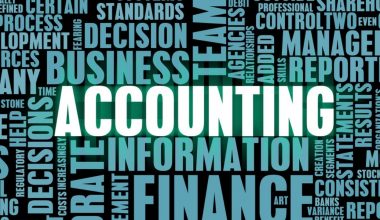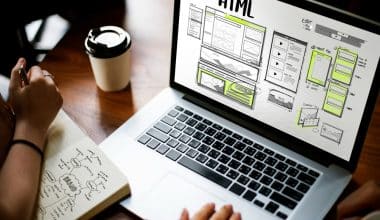Having the right skills for an interview can make all the difference in whether you land a job or not. Interview skills can be learned, and it’s important to understand what they are and how to develop them. In this article, we’ll look at the basics of interview skills, how to train for them, what qualities to look for in an interview, and techniques to help you ace the interview.
What Are the Basic Skills of an Interview?
Interview skills are the set of abilities you need to succeed in an interview setting. They include communication, organization, problem-solving, and the ability to think on your feet. Effective interview skills can be developed through practice and research.
Communication: Communication is one of the most important skills you can have during an interview. You need to be able to clearly explain your qualifications and experiences, as well as be able to clearly understand and respond to the questions asked.
Organization: You should be able to organize your thoughts and be able to answer questions in a concise and coherent manner. This includes having a good grasp of the topics that will be discussed and being able to follow the interviewer’s train of thought.
Problem-solving: You should be able to think on your feet and come up with solutions to any problems that arise during the interview. This could be anything from a difficult question to an unexpected turn in the conversation.
Thinking on your feet: This is the ability to think quickly and come up with creative solutions to problems. This can be especially useful if the questions asked are unexpected.
Training for Interview Skills
The best way to train for an interview is to practice. You can do this on your own or with a friend. Here are a few tips to help you practice:
- Prepare for the interview. This includes researching the company, familiarizing yourself with the job description, and preparing answers to common interview questions.
- Practice answering questions out loud. This can help you become comfortable speaking in front of an interviewer.
- Record yourself. This can help you assess your performance and identify areas of improvement.
- Practice with a friend. Having someone to practice with can help you become more confident in your responses.
What Are 5 Interview Qualities?
When looking for the right candidate for a job, employers look for certain qualities. Here are five qualities to look for in an interview:
#1. Interpersonal and Communication Skills
The capacity to effectively connect with others and get along with a variety of diverse personalities are two of the most desired skills in job seekers, say recruiters.
#2. Analytical Skills
Any organization can benefit greatly from having employees who can identify issues, identify and describe the key problems, and identify and suggest workable solutions.
#3. Reliability and a Proven Work Ethics
Candidates should exhibit dependability, responsibility, and consistency in their work performance since employers seek dependable employees.
#4. Flexibility and Adaptability
Employers must be aware that employees can grow and adapt as their businesses develop.
#5. Intellect and Creativity
Individuals who are always coming up with novel ways to complete tasks are ideal prospects for jobs.
Motivational Interview Skills
Motivation is an important factor in successful interviews. Here are a few tips to help you stay motivated:
#1. Set goals: Setting goals for yourself can help you stay on track and focus on what you need to do.
#2. Do your research: Researching the company, the job, and the industry can help you stay motivated and ensure that you’re prepared.
#3. Stay positive: Keeping a positive attitude can help you stay motivated and focused.
#4. Practice: Going over your answers and responses over and over again can help you feel more confident and ready.
#5. Take breaks: Taking breaks throughout the day can help you recharge and refocus.
What Are the Four Core Skills of Interviewing?
When it comes to interviewing, there are four core skills you should focus on to ensure a successful interview:
#1. Listening: Being a good listener is essential in an interview. You should be able to listen carefully and understand what the interviewer is asking.
#2. Asking questions: Asking the right questions can help you gain insight into the company and the job.
#3. Being prepared: Doing research and preparing for the interview can help you feel more confident and prepared.
#4. Follow-up: Following up after the interview can help you stay top-of-mind with the interviewer.
Interview Skills for Students
For students, interviews can be a great way to gain experience and practice their interview skills. Here are a few tips for students to help them prepare for an interview:
Create a Portfolio
To have a portfolio, you don’t have to be a student of the visual arts. Even students studying commerce ought to bring a portfolio to the interview. A portfolio can be anything from a website to a blog to a binder of examples of your work. A portfolio, then, is evidence that you are who you say you are. Make use of this to your benefit!
Research the position, the interviewer, the company, and the sector
Do your study on the role before the interview so you can explain why you are a good fit. In the same way, you should look up the interviewer’s background to determine what kind of experience they have with the organization. Researching the company and the sector is crucial as a final step. This is crucial since you need to have the information to respond to inquiries about the two.
Develop responses to frequently asked questions
Describe yourself to me. You wish to work here, why? When have you demonstrated leadership? In five years, where do you see yourself? During your interview, you can be asked some of the following questions. Don’t worry about them if you know they might be asked; just be ready.
Have a copy of your resume and cover letter with you
Bring a copy of your resume and cover letter to give off an air of professionalism and preparation. This provides potential employers the chance to study your resume again as not all businesses will have a printed copy on hand. In a similar vein, you can utilize these records to review prior employment.
Be Well-Dressed
Not necessarily does this entail a suit and tie. Make inquiries about the dress code and company culture. Following that, it is always preferable to dress a notch above the “average”. Even while you might not want to overdress, being underdressed would be even worse. Even so, you want to leave a favorable first impression. You will blend in with the workplace culture if you dress appropriately for the corporation.
Tell your Story
“Tell me about yourself” this is a common question among recruiters. Prepare to tell your narrative to the interviewer by keeping this in mind. Make sure to connect your narrative to the position you are applying for as you tell it. This is your moment to stand out and make an impression during the interview.
Practice
It might be done in front of a mirror, a friend, or a relative. Speaking your narrative aloud will make it easier for you to do so in the interview. If you practice out loud, you are also more likely to remember what you want to say.
Ask Questions
Do you have any questions? will be the last question you hear during every interview. Think again if your response to this is no. You absolutely need to have three questions prepared for the interviewer. It not only demonstrates your interest in the job but also addresses any questions not covered on the website.
Follow-up
Breathe normally! The interview has concluded. Yet it’s crucial to get in touch with your interviewer thereafter. Send a thank you email or LinkedIn message to maintain the connection in that case. If you follow this final step, you have a better chance of getting the job!
Interview Skills in Communication
Communication is an important skill in an interview. Here are a few tips to help you improve your communication skills:
#1. Be confident: Being confident in yourself and your abilities can help you make a great impression.
#2. Listen carefully: Listening carefully to the interviewer’s questions and being able to respond in a timely manner can help you stand out.
#3. Be concise: Try to be as concise as possible when answering questions.
#4. Ask questions: Asking relevant questions can show that you have done your research and are interested in the job.
#5. Show enthusiasm: Showing enthusiasm for the job and the company can help you stand out from the other candidates.
What Are 12 Interview Techniques?
There are many techniques you can use to help you prepare for an interview. Here are 12 interview techniques to help you get the job:
#1. Research the company and the job to ensure you are prepared for the interview.
#2. Practice: Practice answering questions out loud to become comfortable speaking in an interview setting.
#3. Dress appropriately: Wear professional clothing that is appropriate for the job.
#4. Be on time: Ensure you arrive early, do not rush, and can make a good impression.
#5. Be confident: Be confident in yourself and your abilities to help you stand out.
#6. Listen: Listen carefully to the interviewer’s questions and respond in a timely manner.
#7. Show enthusiasm: Show enthusiasm for the job and the company to make a great impression.
#8. Ask questions: Ask relevant questions to show that you have done your research.
#9. Be prepared: Have a few questions prepared to stand out from the other candidates.
#10. Follow-up: Follow up after the interview to show that you are interested and engaged.
#11. Stay positive: Keeping a positive attitude can help you stay motivated and focused.
#12. Network: Reach out to contacts in the industry who may be able to help you find a job.
What Are the 3 C’s of Interview?
The 3 C’s of an interview are:
- Confidence: Being confident in your abilities can help you stand out and make a good impression.
- Clarity: Being able to talk clearly and briefly will help you answer questions and show off your skills.
- Connection: Establishing a connection with the interviewer can help you stand out from the other candidates.
What Are 3 Interviewing Tips?
Here are three tips to keep in mind when preparing for an interview:
- Do your research: Research the company, the job, and the industry to ensure you are prepared.
- Be prepared: Have a few questions prepared to show that you have done your research.
- Stay positive: Keeping a positive attitude can help you stay motivated and focused.
What Are the 3 Parts of a Good Interview?
A good interview consists of three parts:
- Introduction: This is your chance to introduce yourself and make a great first impression.
- Body: This is where you showcase your skills and explain why you are the best candidate for the job.
- Conclusion: This is your chance to thank the interviewer, ask any questions you may have, and follow up after the interview.
Conclusion
Interview skills are essential for success in an interview. They include communication, organization, problem-solving, and the ability to think on your feet. You can develop effective interview skills through practice and research. Additionally, employers look for certain qualities in an interview, such as communication skills, enthusiasm, problem-solving skills, organization, and time management. Motivation is also important, and you can achieve it by setting goals, doing research, staying positive, practicing, and taking breaks. Finally, there are four core skills of interviewing – listening, asking questions, being prepared, and following up—and 12 techniques you can use to help you prepare for an interview. With the right skills and preparation, you can ace any interview.
- TOP 10 QUESTIONS TO ASK WHEN INTERVIEWING SOMEONE
- EXIT INTERVIEW: Tips for Conducting an Exit Interview (+Example questions)
- WHAT TO SAY IN AN INTERVIEW: Tips on What To Say
- Good Interview Questions to Ask: Top Strategic Questions to Ask
- 20 QUESTIONS TO ASK HIRING MANAGER IN 2023






